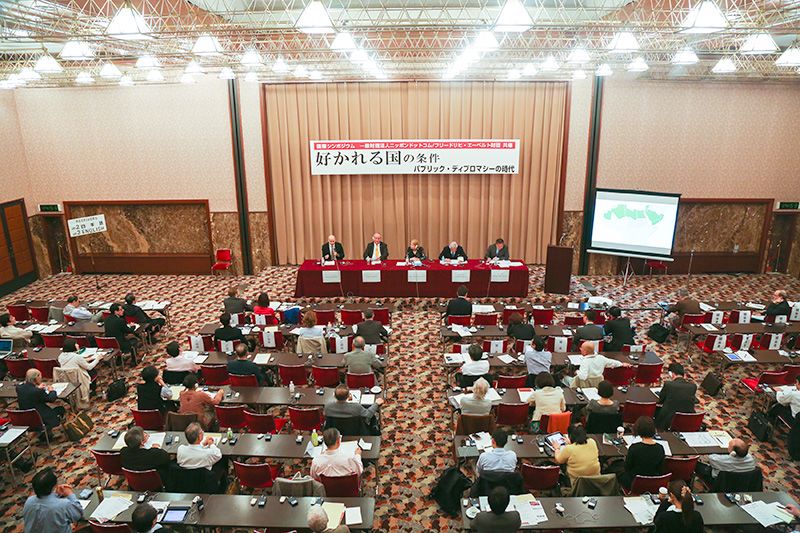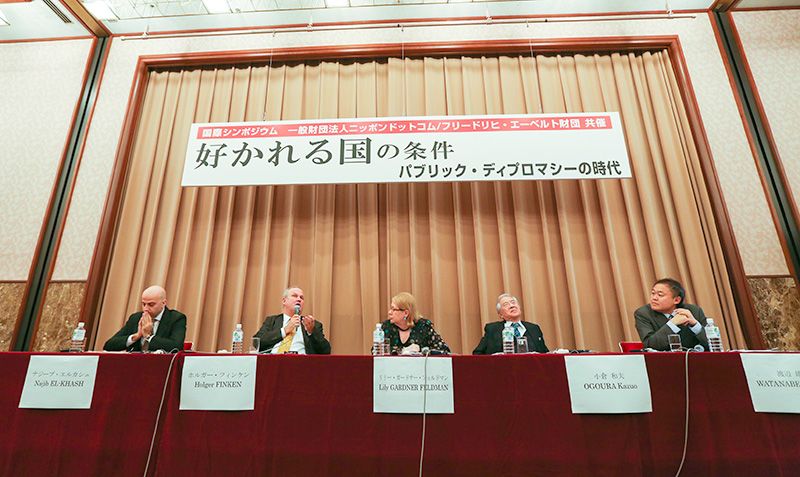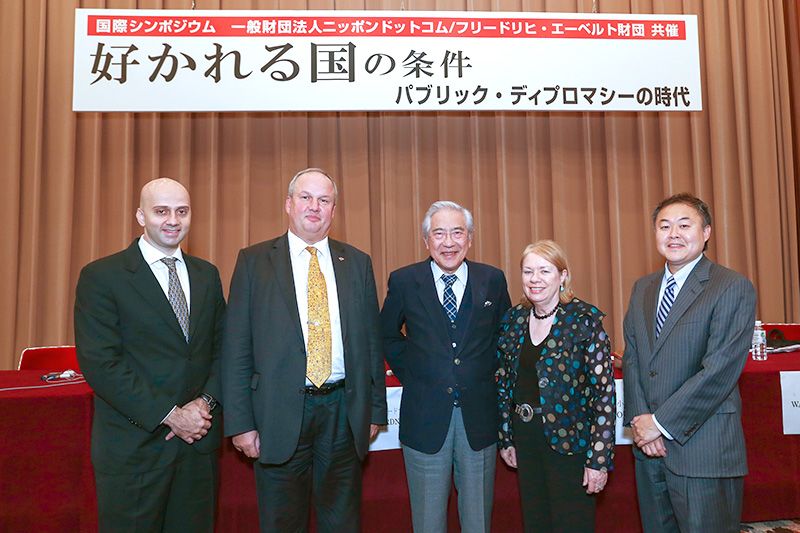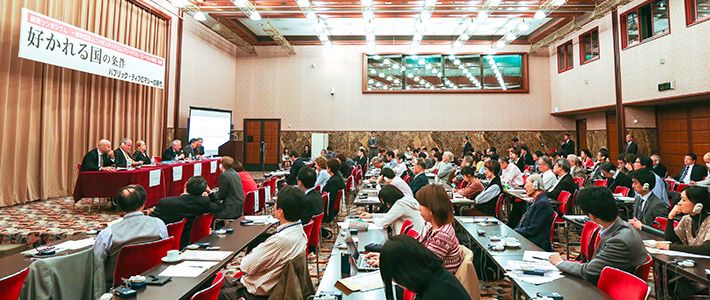
The Age of Public Diplomacy: How It’s Done, and How It Could Be Done Better
Politics Culture- English
- 日本語
- 简体字
- 繁體字
- Français
- Español
- العربية
- Русский
Japanese and German Public Diplomacy
At the second session, Professor Watanabe Yasushi of Keiō University acted as moderator. He was joined by Ogoura Kazuo (former Japanese ambassador to France, president of the Japan Foundation, and head of the Tokyo 2020 Olympic bid committee), Lily Gardner Feldman (senior fellow at the American Institute for Contemporary German Studies, Johns Hopkins University), Holger Finken (director of the Tokyo branch of the German Academic Exchange Service), and Syrian journalist Najib El-Khash.
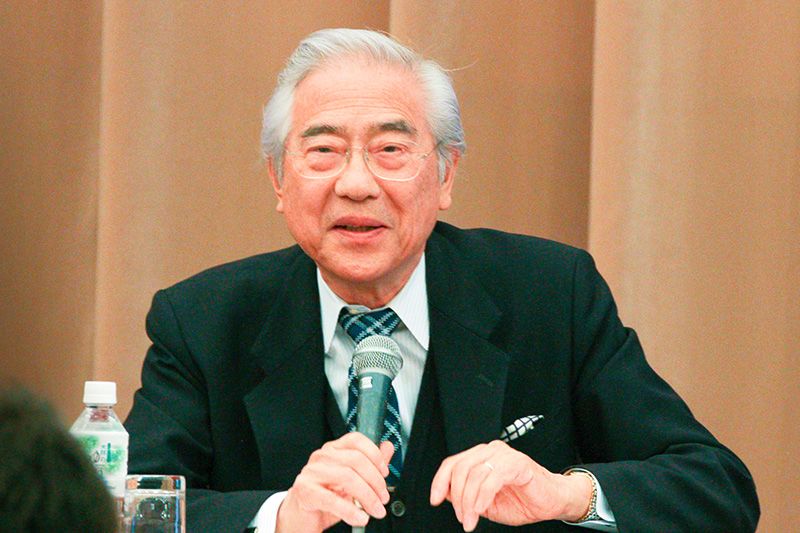 Ogoura opened his remarks by observing that Japanese diplomacy since the Meiji era has focused on “correcting” the image of Japan overseas. It has been a “not this, but that” policy, he said, with the Japanese government working to counter or correct stereotypes or “misunderstandings” of the country overseas. At various stages in its recent history, Japan has therefore worked to reassure people that it is not uncivilized, but civilized; not militaristic, but pacifist; not an economic animal, but a diverse contributor to the international community on many levels. Japan has constantly tried to convince the rest of the world that it has changed in some way. In that sense, Japan itself has been a means of public diplomacy.
Ogoura opened his remarks by observing that Japanese diplomacy since the Meiji era has focused on “correcting” the image of Japan overseas. It has been a “not this, but that” policy, he said, with the Japanese government working to counter or correct stereotypes or “misunderstandings” of the country overseas. At various stages in its recent history, Japan has therefore worked to reassure people that it is not uncivilized, but civilized; not militaristic, but pacifist; not an economic animal, but a diverse contributor to the international community on many levels. Japan has constantly tried to convince the rest of the world that it has changed in some way. In that sense, Japan itself has been a means of public diplomacy.
He went on to admit: “I don’t really like the term ‘public diplomacy.’ Japanese culture should not be the exclusive property of Japanese people alone. It should be something that belongs to the whole world. I believe that cultural exchange should aim to enrich the world as a whole—it should not be carried out with the narrow aim of promoting Japan overseas.”
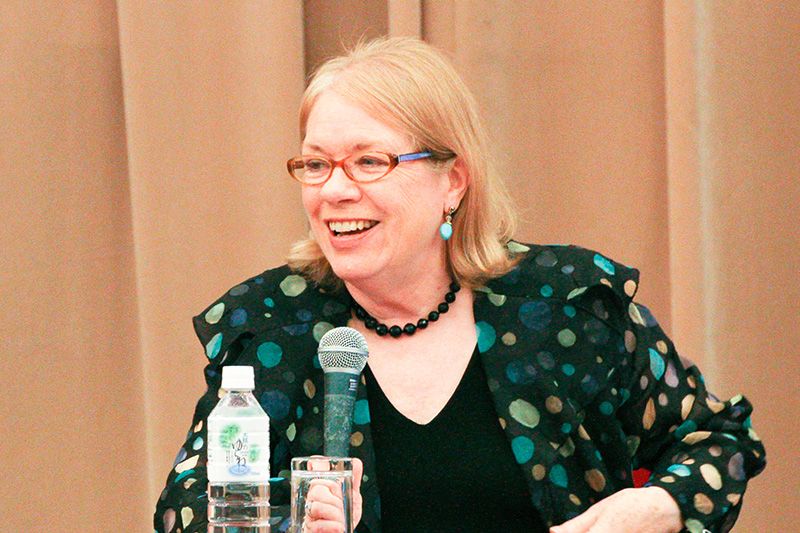 Feldman, who also appeared as a panelist in the first session, gave an account of the three main strands of Germany’s public diplomacy since the end of World War II.
Feldman, who also appeared as a panelist in the first session, gave an account of the three main strands of Germany’s public diplomacy since the end of World War II.
The first stage was apology. Examples of this were the acknowledgment of German guilt in the 1950s by Chancellor Konrad Adenauer and the treaties with countries like France and Poland. Second were visits by German leaders to participate in important ceremonies at symbolic places like the Yad Vashem Holocaust memorial museum in Israel. Gerhard Schröder took part in events to commemorate the sixtieth anniversary of the Normandy landings and the sixtieth anniversary of the Warsaw Uprising; he also attended a ceremony to mark 60 years since the war in Russia. Similarly, former President Horst Köhler attended ceremonies to commemorate 60 years since the liberation of Auschwitz.
The third strand of Germany’s public diplomacy was its success in building friendly personal relations with leaders of other countries: Adenauer, for example, was close to David Ben-Gurion and Charles de Gaulle. More recently, Angela Merkel has built a close relationship with Polish Prime Minister Donald Tusk. Feldman emphasized the importance of diplomacy on a personal level.
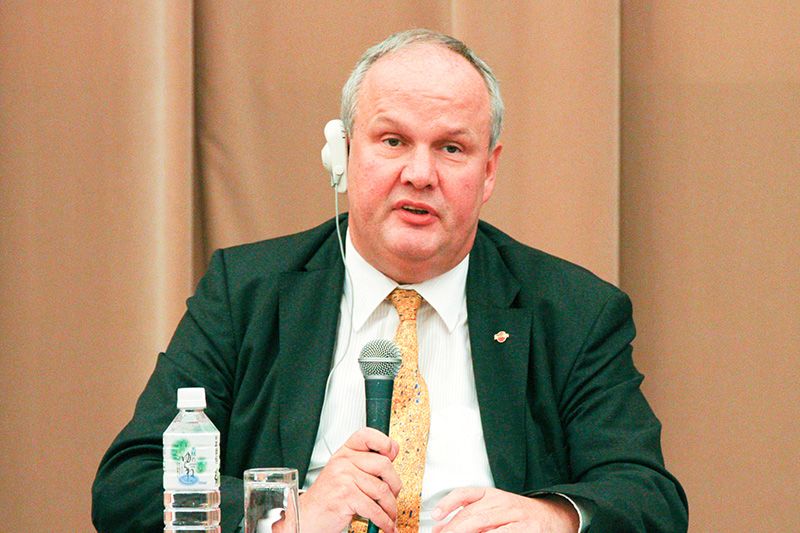 Holger Finken, meanwhile, spoke of the role of Germany’s academic exchanges in the context of the country’s public diplomacy. Many programs existed, he said, to allow German students and young researchers to pursue academic research overseas, as well as allowing foreign researchers to spend time studying in Germany. One important project involved inviting political scientists from a number of countries to Germany during federal elections. Finken said that by sending large numbers of Germans on fellowships and scholarships overseas and receiving foreign researchers in Germany, the German Academic Exchange Service has helped to establish a forum for exchange and has contributed to improving Germany’s image and standing in the international community.
Holger Finken, meanwhile, spoke of the role of Germany’s academic exchanges in the context of the country’s public diplomacy. Many programs existed, he said, to allow German students and young researchers to pursue academic research overseas, as well as allowing foreign researchers to spend time studying in Germany. One important project involved inviting political scientists from a number of countries to Germany during federal elections. Finken said that by sending large numbers of Germans on fellowships and scholarships overseas and receiving foreign researchers in Germany, the German Academic Exchange Service has helped to establish a forum for exchange and has contributed to improving Germany’s image and standing in the international community.
Improving Understanding Between Japan and the Arab World
Syrian journalist Najib El-Khash spoke about public diplomacy between Japan and the Arabic-speaking world from an Arab perspective.
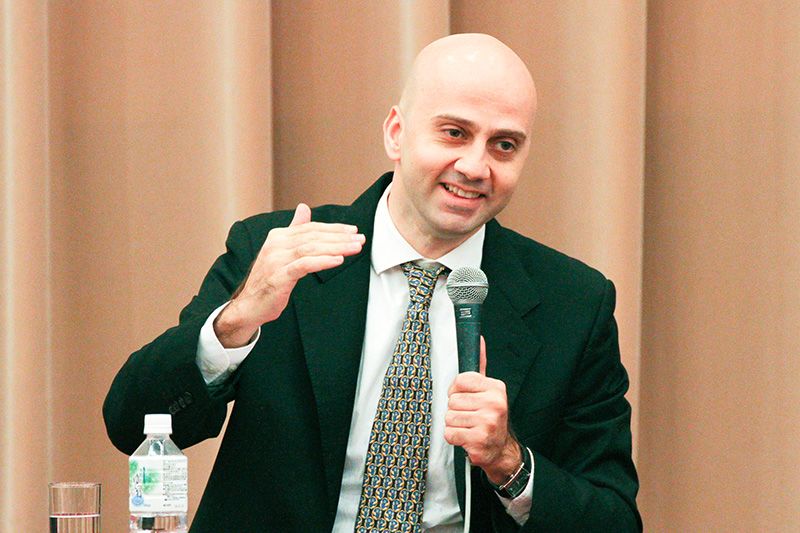 “Japan regards the Arab countries as important economically because it needs oil. But in other areas there is very little understanding,” he said. Japan’s decision to send members of the Self-Defense Forces to Iraq was not popular with most people in the Arab world. There have also been problems with Japan’s attempts at cultural exchange. “I was personally involved in organizing an Arab film festival around the time of the Iraq war,” he said. “When I suggested including films from Egypt—which has by far the biggest film industry in the region—I was told that they wanted to concentrate on films from Iraq. They should really have included films from other countries if they were serious about improving understanding.”
“Japan regards the Arab countries as important economically because it needs oil. But in other areas there is very little understanding,” he said. Japan’s decision to send members of the Self-Defense Forces to Iraq was not popular with most people in the Arab world. There have also been problems with Japan’s attempts at cultural exchange. “I was personally involved in organizing an Arab film festival around the time of the Iraq war,” he said. “When I suggested including films from Egypt—which has by far the biggest film industry in the region—I was told that they wanted to concentrate on films from Iraq. They should really have included films from other countries if they were serious about improving understanding.”
Looking to the Future
After the panelists’ presentations, the discussion broadened to focus on how Japan might successfully pursue public diplomacy in the future. El-Khash noted that Arab countries had supported Japan’s bid to host the 2020 Olympics. “They were so determined to stop Istanbul that they were able to overlook Tokyo governor Inose’s insulting remarks about Islam. The reason is that Dubai is competing with Izmir, Turkey, to host the World Expo, which will also take place in 2020. It would be helpful to Japan’s efforts if more people in this country were aware of things like this going on in the background.”
El-Khash compared Japan’s public diplomacy in the region to successful efforts by France and China. “France set up a research center called the French Institute of Arab Studies in Damascus. It’s one of the biggest organizations of its kind in Syria, and intellectuals from around the region work and come away with a friendly impression of France as a result. China is also working hard on academic exchanges, and is sending Chinese language teachers to universities throughout the Arabic-speaking countries.”
The Advantage of Nongovernmental Actors
In the second half of the session, discussion was opened to the audience. Watanabe asked Ogoura for his opinion of the Abe government’s support for Japan’s cultural and creative industries. Ogoura said he believed the priority for Japan should be to develop an audience of people around the world capable of receiving Japan’s “broadcasts” accurately. “In the case of the United States,” he said, “the whole world is interested in the latest trends and developments there. They don’t need to worry about building up an audience. But for a country like Japan, that has to be the starting point. Personally, I have my doubts about the effectiveness of the ‘Cool Japan’ idea as a public diplomacy strategy.”
Finken responded, saying that in his experience many students and researchers who visited Japan were quite impressed by Japanese pop culture. He said many young people in Germany become interested in Japan and want to visit because of the attractiveness of “Cool Japan.”
There was a question from the floor about cases in which the positions of the national and regional governments did not match. Ogoura said that this was no bad thing. “It is valuable for the opinions of the national and regional governments and those of ordinary residents to be communicated overseas. This shows the diversity that exists within Japan. I don’t think the purpose of public diplomacy should be simply to show the national government in a good light.”
The Élysée Treaty that consolidated reconciliation and cooperation between Germany and France had its roots in exchanges between young people from the two countries, Feldman observed; it was only later that an official treaty was signed. Similarly, there was significant support for the Solidarity movement in Poland among German labor unions, in contrast to the official policy position of the German government. “In public diplomacy,” she said, “I think it is possible for government and nongovernment actors to reinforce each other as well as compete.”
In closing, Ogoura spoke of the advantages of nongovernmental actors in public diplomacy. “They are able to act at a distance from the national government and pursue universal values,” he said.
Photos by Itabashi Yūichi.
diplomacy public diplomacy international relations policy cultural exchange
